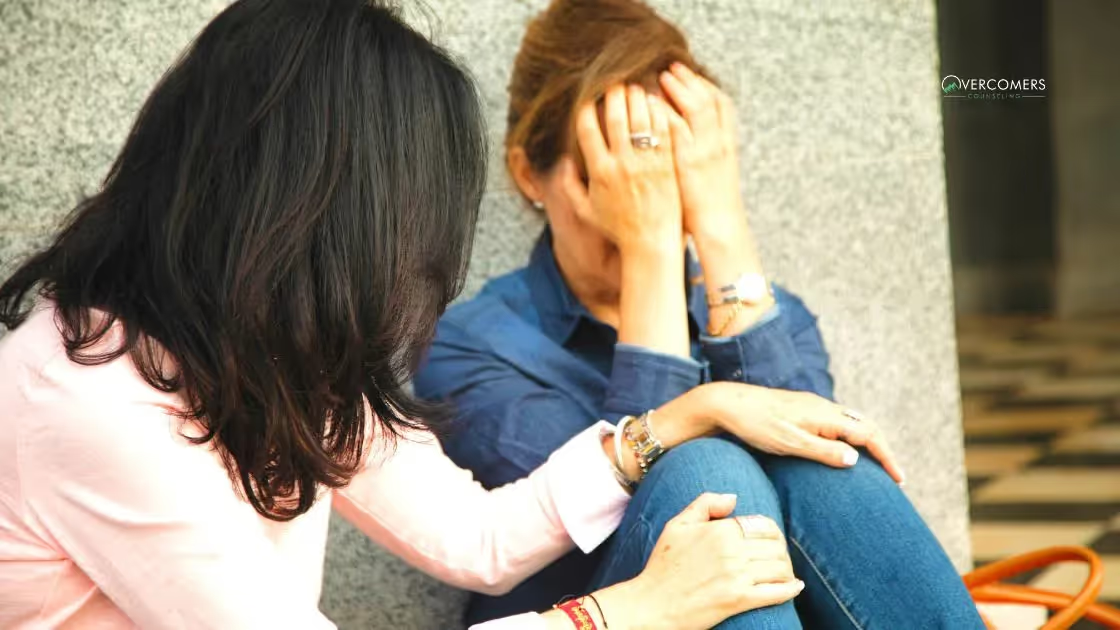When a friend loses a major person in their life, it hurts, and nothing takes away their right to feel the loss and mourn the person's absence from their...

When a friend loses a major person in their life, it hurts, and nothing takes away their right to feel the loss and mourn the person's absence from their life. One of the reasons why everyone finds loss so tough is that we have never learned what to anticipate. With grief comes a lot of uncertainty about living with loss. As a friend, there are different ways you can support a grieving friend. While they are going through a tough time, they need all the support for the grief they can get from those around them. This is why it is always important to make promises to them that you can keep. Breaking promises while they are grieving will do serious damage, and it is a counterproductive way to support a grieving friend. When you see your friend grieving, more often than not, you may feel a strong need to fix the problem immediately, so they can go back to feeling good. Trying to fix the problem can make them feel overwhelmed and will do more harm than good. It's important to understand that embracing it, rather than trying to fix things, is a way to support a grieving friend. Also, sometimes, when suffering from loss, all one might need is a listening ear. Finding a way to express how they feel about their loss can help them in their journey to overcome it. Read on to learn more about ways to support a grieving friend.
Do what you say you're going to do. When you tell someone that you are there for them if they need anything, you should actually mean it. Most of the time, those who say this to grieving people mean well. Help or assistance, however, is seldom forthcoming. You might also give particular assistance rather than asking if there is anything you need. This puts the grieving person in the position of making the request, and they may feel uneasy about doing so. When you make a promise to be there for them, go ahead and do just that. Helping out around the home, whether it's in the kitchen, with the laundry, or with the kids, is a great way to reduce their stress. This facilitates the individual's readiness to receive assistance and thus enables you to support a grieving friend.
As a result of our inability to cope with the pain of others, we often want to alleviate or eliminate their suffering. One cannot "get over" grief. With grief, the price of love is grief. Grieving is how people remember their lost loved ones. There are no words, no magic formula, that will make the grieving feel better. That is why it is important to recognize the validity of their suffering and embrace it. What you can do is put aside your own suffering and sit with them while they cry. Witnessing another person's suffering may have a profound effect on you, yet this is something we tend to undervalue as humans. The point is to be there for that individual and provide them with what they need, not what we imagine they require. Embrace the gravity of the situation.
It's great to have someone who listens with understanding. A buddy who listens patiently no matter how many times you tell the same tale is invaluable. People often cope with loss and tragedy by retelling their experiences. Try not to provide counsel until you're specifically asked for it. Someone who is mourning often wishes someone would simply listen to them. In this case, it is not your advice but rather your insight that is desperately required. Respect their right to grieve in their own way and show empathy by listening to and acknowledging their ideas and emotions. Also, because of the intensity of their feelings, mourning people may benefit from quiet time alone. It's better to do less talking and allow them to express themselves because knowing what to say to a grieving person may be challenging. Don't try to fill the void, but rather, try to appreciate it for what it is. It is sufficient that you are there.

The months after a loss are often the most isolating for the grieving. You should reach out to them, even if it's only to see how they're doing, by calling them, sending them a card, or suggesting that the two of you spend time together. Make an effort to stay in contact with them so that they know they have support. Remember that your friend's loss may be exacerbated by certain dates, such as the anniversary of their death or special days. Take the initiative to contact your pal and let them know they are in your thoughts. When someone shows they care, it warms the heart. Try to include them in ongoing social invitations. It's OK if they don't want to at first, but they might end up being really appreciative. You never know how much your buddy in mourning will appreciate your thoughtfulness when you check up on them and stay in touch.
One crucial part of supporting grieving friends is by being patient with them. The fact is that no one wants to be feeling sad and moping around for months or years on end. Experiencing loss can take a great toll on people, and it's important you give them the time they need to heal from the pain of loss. Telling someone they will "get over it" after the death of a loved one is an insensitive approach to dismissing their pain. Or telling them they will learn to live without the deceased individual. The pain of loss can never be erased; therefore, remembering this is equally crucial. No one ever truly knows when they will be "over it." It may happen at any point in time. There is no one typical person. You should not assume that someone is OK simply because they give off the impression that they are. Keep in mind that even though it seems someone is managing, they may still benefit from your assistance.
Although the sorrow of loss and its subsequent acceptance never completely disappears, most people are able to get over their first stages of grief and move on. Sustaining emotional health at this difficult time requires support for grief. With effort, care, and great consideration, you can support a grieving friend. Five ways to support a grieving friend include only making promises you know you can fulfill, embracing rather than fixing, listening more and speaking less, keeping in touch, and being patient with them.
https://www.therecoveryvillage.com/mental-health/grief/how-to-help-a-grieving-friend/
https://www.health.harvard.edu/mind-and-mood/ways-to-support-someone-who-is-grieving
https://stclarehospice.org.uk/news_posts/5-ways-support-grieving-friend-relative/
https://hospiceofcincinnati.org/5-ways-to-support-grieving-friends-family-when-youre-not-sure-how/
https://www.hrrv.org/blog/10-ways-to-help-a-grieving-friend/
https://time.com/5118994/advice-for-helping-grieving-friend/
Some signs that you may be ready to move on include feeling at peace with the breakup, no longer regularly thinking about your ex, and having a renewed sense of optimism. Ultimately, only you can decide when you're ready to start dating again or take other steps toward moving on.
Grief can seem worse in the morning as the reality of the loss is often one of the first thoughts upon waking. This can be particularly true if you shared many mornings with the person who has passed away during wonderful years spent together.
Ignoring grief can exacerbate symptoms and make it more challenging to manage over time. This can result in a negative impact on your personal, professional, and social life, leading to feelings of isolation, chronic sadness, and even physical health complications.
It is completely normal to feel dread or even fear when thinking about the upcoming holiday season. One way to ease your anxiety is by planning ahead and being prepared for how you will deal with tough moments. If there are certain events you know will be difficult, try to come up with an exit strategy beforehand so you can leave if needed. It can also be helpful to talk to a therapist or counselor before the holidays to help you manage your expectations and emotions.
Grief can be particularly intense in the early days following a loss. However, it's not uncommon for grief to become more pronounced at certain times, like at night or in the morning. This can be due to the mind being busy processing the events that happened.
The stages of grief, according to the Kübler-Ross model, include denial, anger, bargaining, depression, and acceptance. However, it's important to note that not everyone will experience all these stages, or in this order. Grief is a highly individual process.